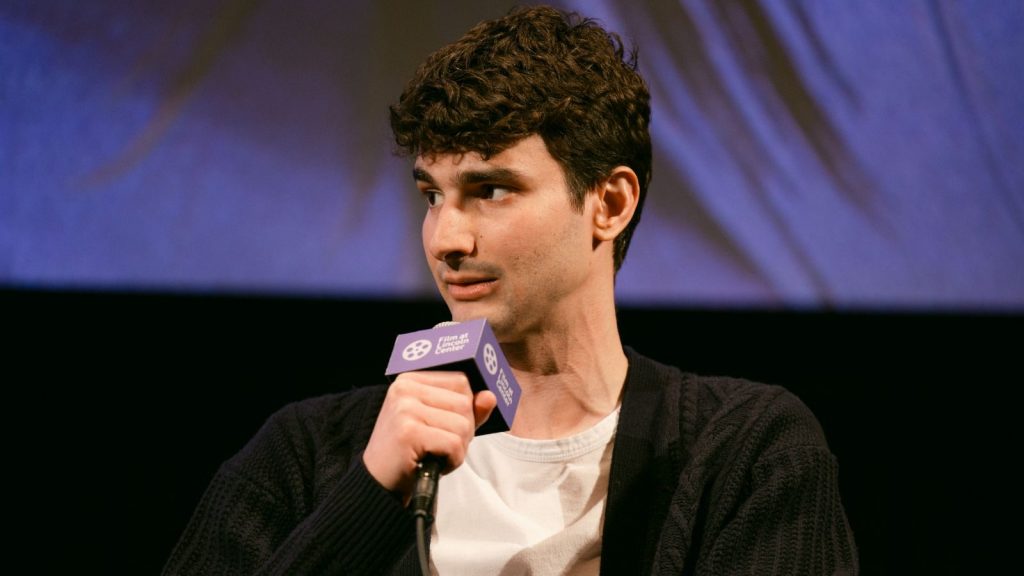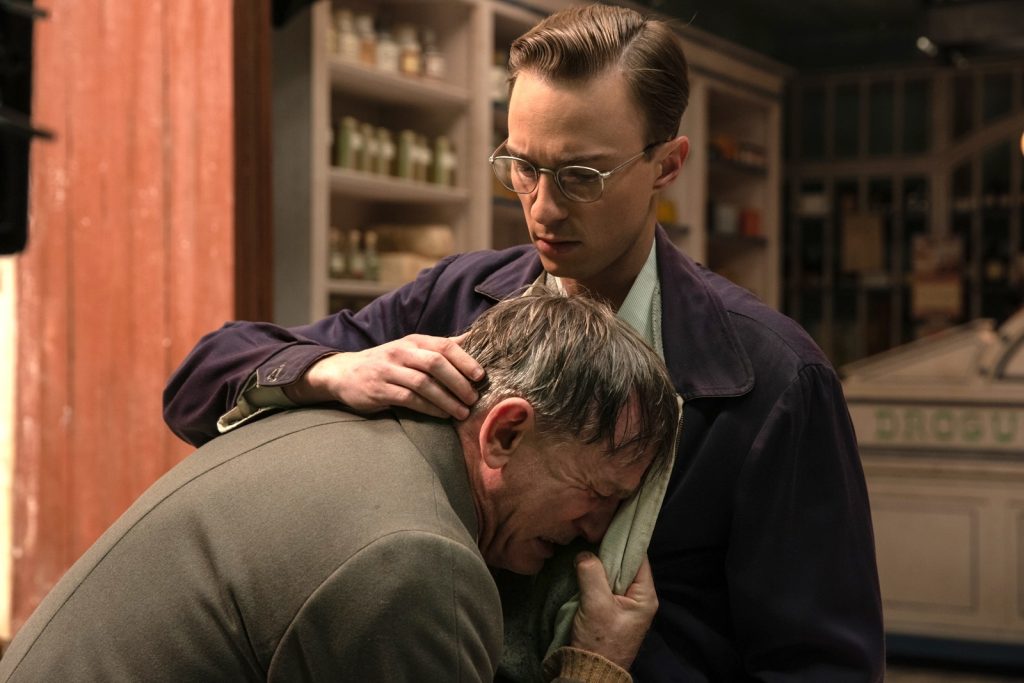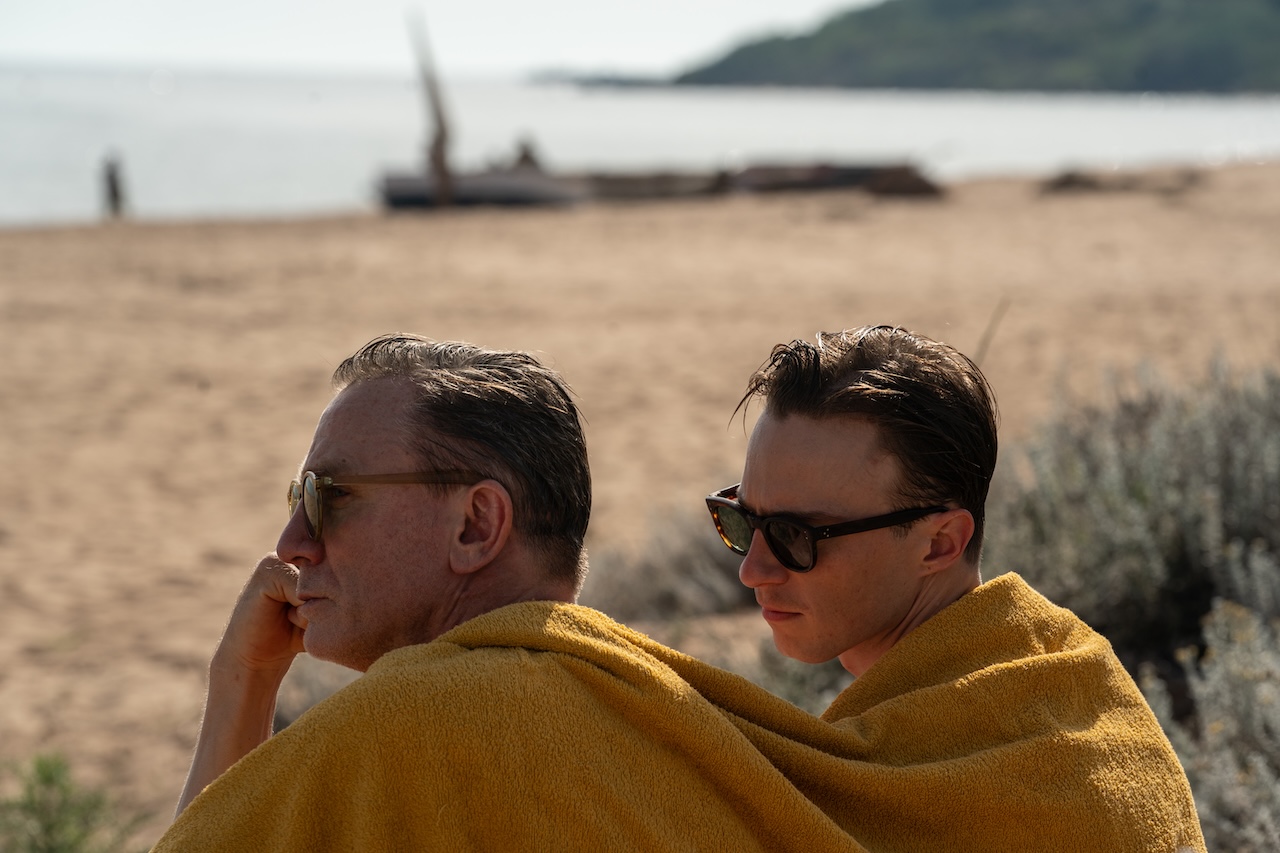Justin Kuritzkes and Luca Guadadigno discussed adapting Queer a William S. Burroughs novel about an exiled American military expat and his fascination with a much younger soldier in Mexico for a while. Since their most recent collaboration on Challengers, they were looking for a new project. Guadadigno had written a draft of Queer many years prior which ruminated in his mind. The time was right to resurrect the project.
Given that the Burroughs name is associated with independent films like Junkie, Elephant, Drugstore Cowboy, and Naked Lunch, audiences should prepare for an enigmatic, cosmic, cinematic treat in Queer.
Kuritzkes shares his thoughts with Creative Screenwriting Magazine about how he navigated the writing process of Burroughs’ unfinished novel.
“When I first read the book I was surprised that it was a generally pretty linear, straightforward love story between these two people,” says Justin.

Justin Kuritzkes
“There was other stuff that interested Burroughs and the characters William Lee (Daniel Craig) and Eugene Allerton (Drew Starkey). At its heart, it was a book about the psychology of these two people looking for connection.”
“I tried to follow that thread and always let that be the drumbeat of the movie so it would end up coming together as a piece of cinema, as opposed to a piece of literature,” continues Kuritzkes.
[More: “An Aggressive Metaphor For Being ‘Othered’” David Kagjanich Talks ‘Bones And All’]
Meet William Lee and Eugene Allerton
William and Eugene are living in Mexico City in the 50s in a tight-knit American expat community. “It’s this intense time capsule of a world that doesn’t exist anymore,” adds the screenwriter.
Lee is a tender and dry-witted addict fleeing the United States because it’s illegal there. “He also knows that he’s queer, and that makes him an outsider too in the context of both the US and Mexico.”
William Lee is a man adrift in a country that’s not his own
Eugene Allerton is a little younger and still exploring his sexuality in self-exile. When they meet, they’re both deeply affected by each other. Luca says, “this is ultimately not a story of unrequited love, but a story of unsynchronized love.” Lee is looking for that elusive meaningful bond and persists in the face of constant rejection.
“Much of the movie is the two of them trying to get in sync, but finding it very difficult for their own reasons. That felt like a really exciting, dramatic situation. And what’s preventing it, is entirely within themselves.”
Mexico: A World Of Men
Being a homosexual in a largely homophobic world isn’t the main point of Queer. The film touches on issues of masculinity, male bonding, and friendship. Most of the characters are male seeking to establish emotional connections. And if they find them, they question whether they are real.
Queer mines themes of alienation and being disconnected from your cultural roots. This expat community lives in a country where they don’t speak the local language very well, they don’t eat the food, and have minimal association with the locals.
Lee doesn’t neatly fit into any masculine stereotype, which was an anomaly in the 50s
“When I tried to see the movie through the lens of Lee’s love for Allerton and Allerton’s love for him, the complications of that, and their attempts to get in sync with each other despite their idiosyncrasies, felt like a universal dilemma. It felt like something that anyone who’s ever loved anyone, or tried to love anyone, could connect with,” mentions Kuritzkes.
“Writing the movie was very much a balance of those two forces; this universal thing on the one hand, and this very particular time, place, and culture on the other.” Lee and Allerton are also from different generations which presents an additional layer of complications to their relationship. In spite of their age difference, it’s Lee’s addiction which most tests their relationship.

William Lee (Daniel Craig) & Eugene Allerton (Drew Starkey) Yannis Drakoulidis. Courtesy of A24
Adapting Burroughs’ Unfinished Novel
Rattled by the tragic death of his wife Joan Vollmer, William S. Burroughs wrote his novel between 1951 and 1953, but it wasn’t published until 1985.
Queer is a shared collaborative vision between Luca Guadadigno and Justin Kuritzkes who wanted to honor and be faithful to the novel, but also, strategically depart from it.
Justin sought to understand Burroughs’ story on his own terms, in his own language, using his own point of view.
Burroughs notably didn’t complete Queer, so Justin Kuritzkes needed to create a plausible ending. Burroughs journals was a good place to start. “I really thought about that process as trying to excavate where the novel wanted to go. Trying to extrapolate from within the novel, as opposed to imposing something onto it from top down, or purely from the outside.”
“I saw my job as being a careful and close reader, and then trying to intuit where a thread that the novel maybe wanted to go.” Justin cites the scenes in the third act where Lee and Allerton travel through the jungle in search of the hallucinogenic beverage “ayahuasca” as examples.
“To me, that felt like the book was opening a door and then quickly closing it. I wanted to see what would happen if we opened the door and went through, and saw what was on the other side.”
I’m not queer, I’m disembodied
William Lee speaks this potent line of dialogue twice in the movie. It resonated deeply with Justin because “it had such a deep well of meaning. It was some key to understanding Lee’s entire conception of himself.” Both men were uncomfortable with their sexuality, especially in the social constructs of the era, and sough to distance themselves from it.
Kuritzkes initially wanted Allerton to echo this line because “it felt like a moment where they saw each other clearly, purely, and without interference. They had reached this place they were edging towards the whole film.”
Queer inhabits themes of loneliness, desperation, and accepting the limitations of how much love we can expect from another human being.
Disembodiment also suggests identity is constantly evolving. Ultimately, Kurtizkes decided against it to leave the issue unanswered and open to audience interpretation.
Queer ends in a similarly nebulous way. Allerton disappears after he and Lee leave the jungle in a state of distress. Even in his final days, Burroughs was likely thinking about his brutal rejection by Adelbert Lewis Marker who Allerton is based on.
Luca Guadagnino even asked Trent Reznor and Atticus Ross from Nine Inch Nails to compose a song called Te Maltigo (I curse you) using the lyrics of the last poem William S. Burroughs ever wrote in his journal to end the film.
